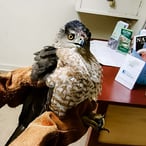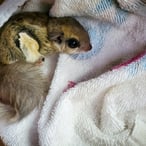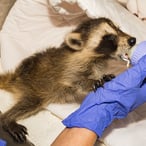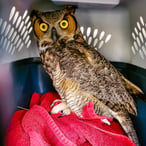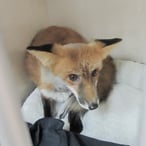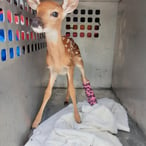Indigenous wildlife is regulated and mainly handled by the NJ Department of Fish & Wildlife, and licensed wildlife handlers, respectively. Exotic species are regulated by NJ Department of Environment Protection.
Nevertheless, as the first responders to the animal world, there are several types of incidents that ACO's do respond to
Wild animals suffering, actively bleeding or with visible bones or fractures.
Wild animals walking in circles, screaming, or falling over. (keep in mind that Raccoons and skunks walk with a limp)
Wild adult animal that has not left the same spot for an hour or more.
Young wildlife including fawns weighing 10 lbs. or less and baby raccoons screaming.
We cannot capture fully mobile foxes. In cases beyond our scope or the Police's, we would refer you to NJ Fish and Wildlife
Wildlife Control Unit or the DEP Hotline (877-WARN-DEP)
Mange is common, and in most cases survivable without intervention. According to the state, "Treatment of wild animals is difficult and not advised."
Note- In terms of healthy or "nuisance" wildlife that has entered and is occupying the immediate living space of a house, we are only allowed by law to relocate it outside the house at the same property. For wildlife not in immediate living space, please see the extra services tab.
Adult deer
Unlike fawns, fully grown wild deer cannot be confined or handled. Though it’s hard to accept, adult deer can almost never be caught and successfully treated. If an adult deer is cornered or captured, it will struggle to break free harming itself and anyone nearby in the process.
If you see an adult deer with a broken leg or other injury, unless it's suffering, leave the animal alone. Even though the injury may take time to heal, this is far better than the trauma of chase and capture. Wild animals have an amazing ability to heal and adapt to injuries. If the deer can't stand up, call your local Police to humanely euthanize it.
Wildlife

